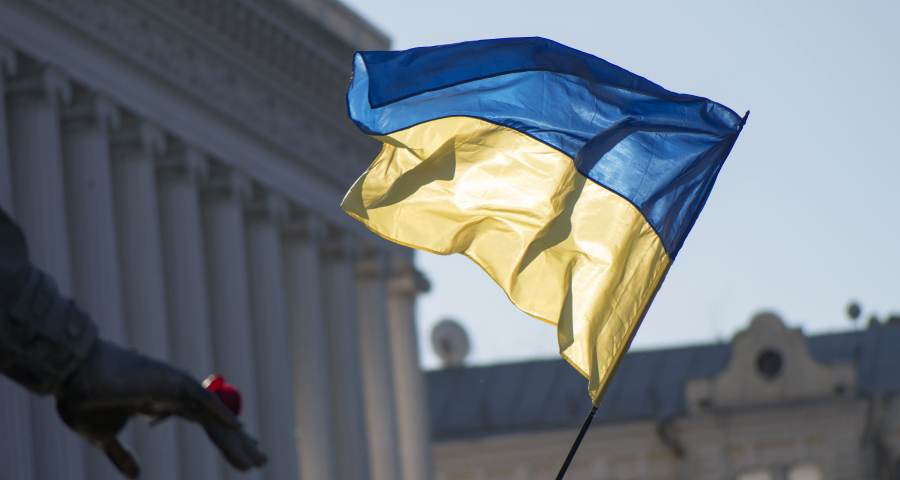The global biopharmaceutical industry should probably expect increasing pressure over its response to Russia's invasion of Ukraine.
Shocking hardly seems sufficient to describe the situation in Ukraine. Hundreds of deaths are reported each day, military and civilian, with media in the US and UK now suggesting an increasingly desperate Russian leadership is considering the use of chemical weapons.
This is almost certainly a defining moment in history.
The situation has triggered a fierce global response, from individual governments, international organisations and companies, much of which is driven by genuine public anger across the world.
The pharmaceutical industry's response appears somewhat confused.
A number of senior pharmaceutical executives, including the global CEO of BioMarin, have called on the industry to sever ties with Russia. Some medical device companies have already ceased operations in Russia.
GSK has condemned Russia's invasion, says it supports sanctions, has stopped all advertising and will not enter into any contracts that directly support the country's administration or military.
Sanofi, Roche and Novo Nordisk have also condemned the invasion.
However, most remain opposed to closing their operations in Russia, significantly on the basis of patient need.
Some have not even criticised Russia and one almost unbelievably suggested it might provide additional resources to the country.
It is an approach that puts the industry at odds with its corporate peers, global public opinion and a multitude of governments that have imposed increasingly severe sanctions on Russia's regime, its supporters and the country's economy.
Companies in financial services, banking, clothing and apparel, food, mining, oil and gas, entertainment and information technology have closed or suspended their operations in Russia.
The companies include Apple, Disney, Sony, Disney, Starbucks, Coca-Cola, Pepsi, Visa, Mastercard, PayPal, Rio Tinto, BP and ExxonMobil, Hyatt and Hilton, Hitachi, Deloitte, EY, PwC and KPMG, UPS, FedEx and DHL. They will all pay a financial price for their decisions but that is the nature of sanctions.
Their response is also broadly aligned with that of many governments, including those in Australia and New Zealand, that have joined the global push to impose severe sanctions on Russia.
Consumers in countries like Australia and New Zealand are already feeling the impact of these sanctions through higher oil prices. Once again, it is the nature of sanctions.
Most pharmaceutical companies have so far preferred to publicly express their concern over the invasion, made financial donations to Ukraine relief programs and contributed medical supplies.
Yet should Russia's health system be significantly excluded from the consequences of its government's actions in Ukraine? Or, does Russia's deliberate targeting of civilian areas, its amoral bombing of a maternity hospital and wanton disregard for life demand a specific response from healthcare companies?
Can the industry, which prides itself on taking public positions on high profile social issues, really seek neutrality on its approach to patients in Ukraine and Russia?
Of course not.
Each pharmaceutical company might ask itself how its continued operation in Russia supports the extraordinary global push to cripple that country's capacity to wage war on the people of Ukraine?
How should communities utterly horrified by Russia's actions in Ukraine interpret the apparent willingness of some pharmaceutical companies to create equivalence between patients in the two countries?
Is the industry listening to global public opinion on what is happening in Ukraine?
The pressure is now coming with some pharmaceutical companies included in the 'shame' list of those still operating in Russia.
The industry must be contemplating the risk of being caught in the uncomfortable position of defending the maintenance of operations in a country whose unprovoked aggression has imposed such terrible suffering.
What is the right thing to do? How will history judge the industry's response?
Some might argue there is no easy answer but at least one major biopharmaceutical company and several medical device companies have already acted.
Nobody would argue ceasing operations and withdrawing products is not a difficult decision. Yet companies regularly delay, choose not to launch or even withdraw products from countries, including Australia.
Many companies completely withdrew their operations and products from New Zealand in response to that country's medicine reimbursement policies.
Patients in New Zealand and sometimes Australia are expected to live with the consequences of their government's actions. Why not those in Russia?
Nobody would seek to compare the impact of commercial product decisions in Australia and New Zealand to the terrible situation in Ukraine but maybe that is the point.
Can the industry really hide behind patient need in its response to Russia?
If companies can delay and withdraw products or even cease operations from these markets for commercial reasons, with the associated consequences for patients, can a decision on Russia really be that hard?

